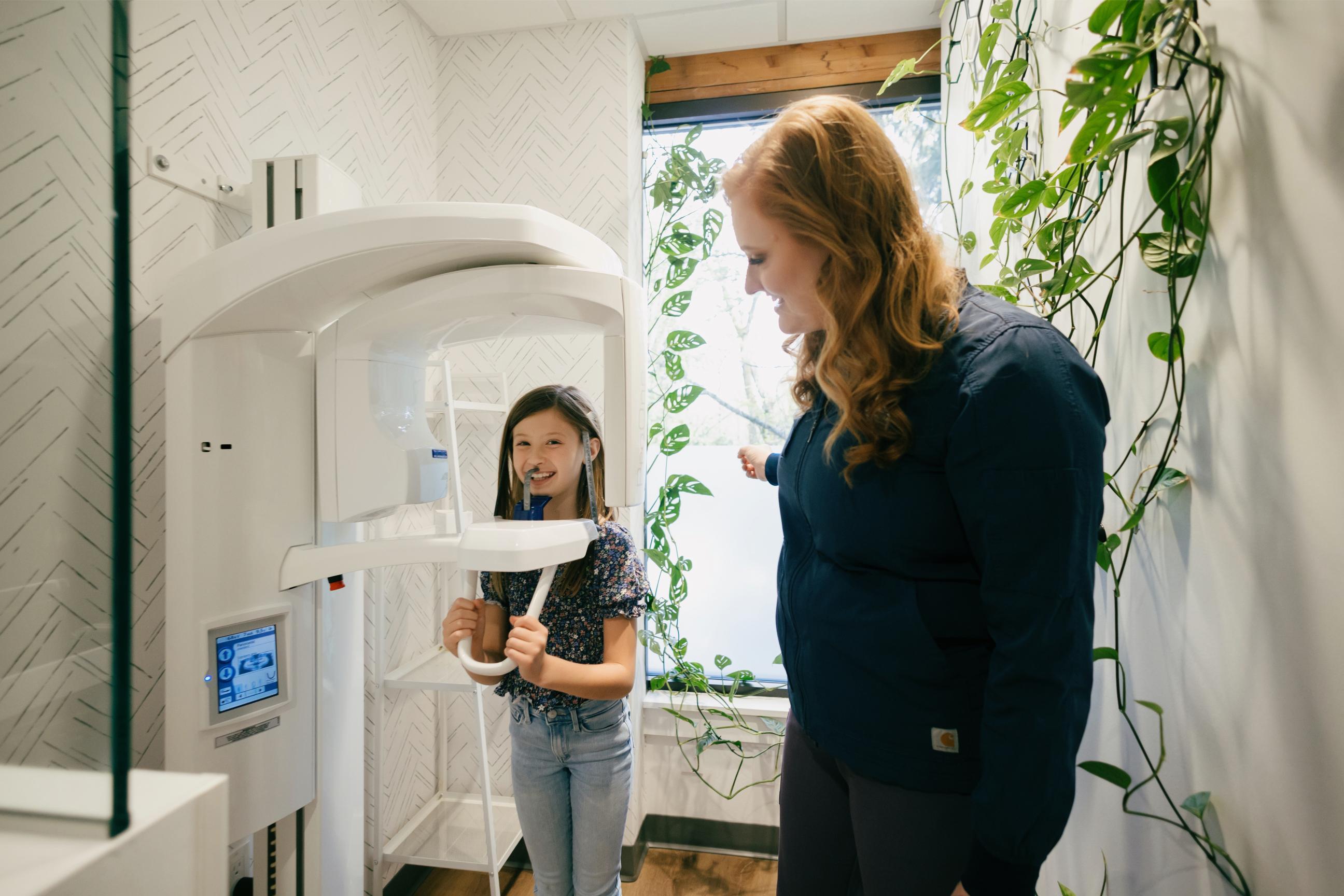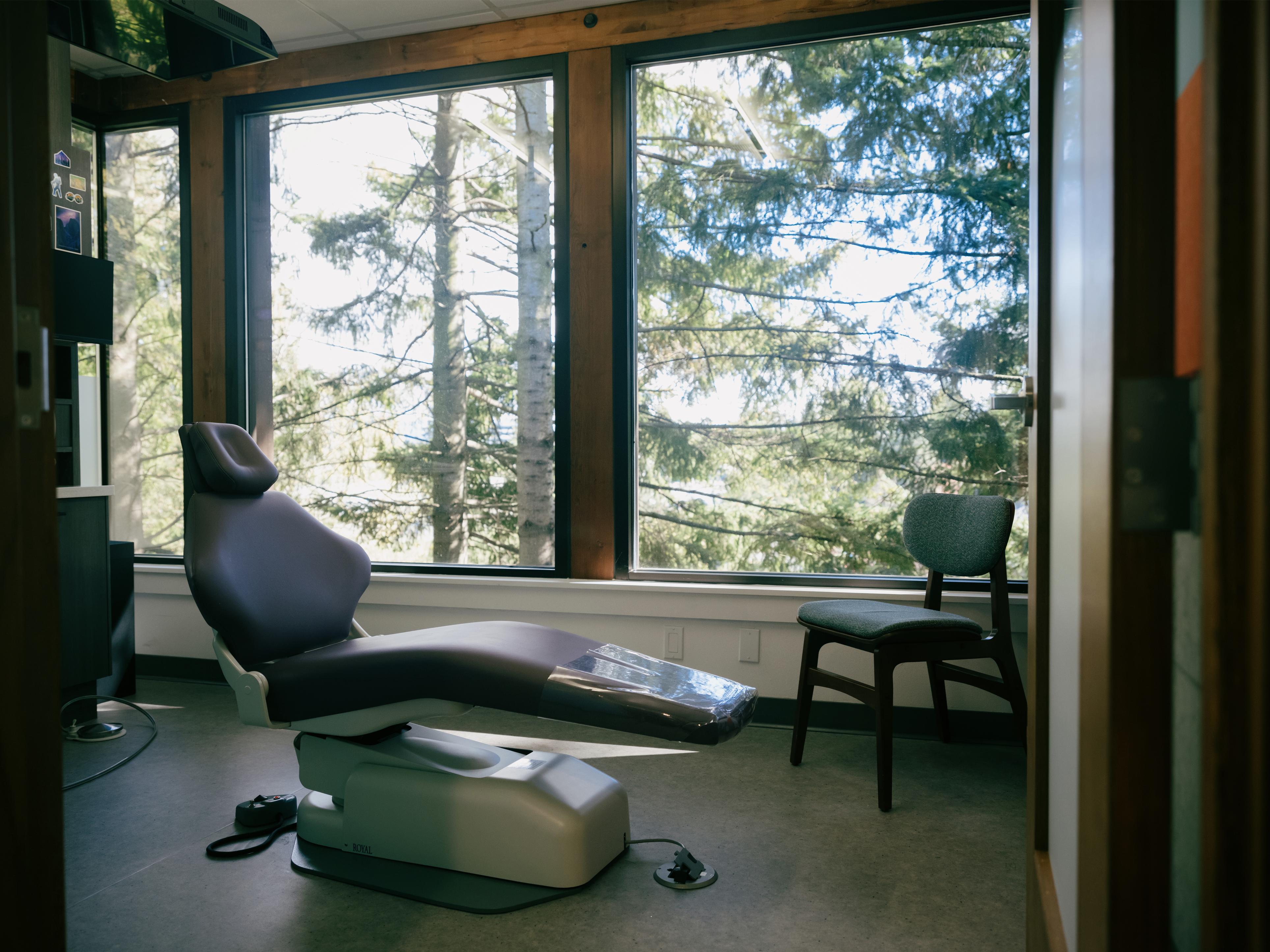Pediatric Dental Crowns

At Expedition Pediatric Dentistry, our goal is to help each of our young patients develop strong foundations of oral health that will benefit them for the rest of their lives. While preventing oral health problems from occurring is always the best strategy in dental care, tooth decay and injuries can sometimes still happen. In cases where the damage to a tooth is significant, a dental crown might be necessary to save your child's natural tooth and avoid the need for extraction.
What Are Pediatric Dental Crowns?
A dental crown (also called a cap) is a type of restorative dental prosthetic. Crowns are shaped like natural teeth and designed to fit over a tooth, completely covering (or capping) its exposed surfaces. Pediatric dental crowns are just like regular, adult dental crowns, except they are used in pediatric dentistry to protect children's natural teeth.
Common Types of Pediatric Crowns
Several different types of dental crowns exist, and they differ primarily in their material composition. Some of the most common types of crowns used in pediatric dentistry include:
- Porcelain Crowns
Porcelain is one of the most commonly used materials in dental restorations because it offers a very natural look while also providing good durability.
- Porcelain-Fused-to-Metal (PFM) Crowns
When porcelain isn't quite strong enough, PFM crowns offer an aesthetically pleasing alternative bolstered by the strength of underlying metal.
- Zirconia Ceramic Crowns
Zirconia refers to zirconium dioxide, a crystalline, ceramic material that offers durability and a natural look in dental crowns. While they can be more costly, zirconia crowns are a good option for patients who are sensitive or allergic to metal but require exceptional durability.
- Resin Veneer Crowns
Similar to PFM crowns, resin veneer crowns feature an underlying metal structure covered with tooth-colored resin. Resin is not quite as durable as porcelain, but it is typically a more cost-effective material.
- Resin Composite Crowns
These crowns are tooth-colored and less expensive than their 100% porcelain counterparts. They, however, do not offer as much strength and durability as other dental crown options. For this reason, they are not recommended for posterior teeth that withstand a significant amount of chewing pressure on a daily basis. They can be used for treating front teeth, but children are advised not to bite directly into any particularly hard, chewy, or sticky foods.
- Stainless Steel Crowns
Stainless steel crowns are not as aesthetically pleasing as tooth-colored treatment options, but they are a highly durable and economical choice for some treatments. These are most often recommended for treating posterior teeth because they are less visible and also require a durable restoration material.

Which Type of Crown Is Right for Your Child?
At Expedition Pediatric Dentistry, we're equipped to provide children with a variety of crowns, including tooth-colored, white pediatric dental crowns.
The type of crown that is right for your child will depend on several factors that impact aesthetics, durability, and cost, such as the crown's location, the type of tooth being treated, and your treatment preferences for your child. Dr. Miller will walk you through all of your child's treatment options, explain the advantages and disadvantages of each, and answer any questions you might have to help you make the right treatment decision on behalf of your child.
When Would a Child Need a Dental Crown?
Dental crowns are recommended for both primary (baby) teeth and permanent teeth that have significant decay, damage, or injury that has compromised the integrity of the tooth, weakened the tooth's overall structure, or led to an infection of the tooth's internal pulp.
- We recommend dental crowns on permanent and baby teeth alike. Although primary teeth will eventually fall out when a permanent tooth is ready to erupt, they are necessary for maintaining space in the child's jaw while also keeping remaining teeth properly aligned. The alternative to a dental crown is tooth extraction and the use of a space maintainer, which will support proper jawbone development and allow the underlying permanent tooth to erupt normally when it is ready.
Is There an Age Limit for Getting Dental Crowns?
There is no strict age restriction for getting a dental crown. A dental crown may be necessary not long after an infant gets their first teeth if significant decay or damage occurs.
Treatment Expectations: What Happens When Your Child Gets a Dental Crown
Dental crown treatment typically requires two dental appointments. During the first appointment, Dr. Miller will examine your child's teeth, perform any necessary treatments to clear infection, and prepare the tooth for a dental crown. We then take digital dental impressions, using an intraoral scanner, and use these images to design a custom dental crown for your child. We then fit your child with a temporary crown that will protect their tooth while their permanent crown is made.
We send your child's treatment specifications to a dental lab, where the dental crown is milled. When the restoration is ready, your child will return to our office for a second appointment. During this appointment, we remove the temporary crown and use dental cement to permanently secure their dental crown in place. We then make any necessary final adjustments to ensure a comfortable, natural-feeling fit.
How Much Do Pediatric Dental Crowns Cost?
On average, pediatric dental crowns cost between $300 to $500 per tooth, depending on the material being used and the type of tooth being treated. Most dental insurance policies provide coverage for pediatric dental crowns because they are typically considered medically necessary. Our office team can provide you with an estimate of your child's treatment costs in addition to helping you navigate your insurance policy.
Make an Informed Decision About Your Child's Dental Treatment With Pediatric Dental Crowns in Bellevue, WA
At Expedition Pediatric Dentistry, we believe that exceptional dental care occurs when there is a strong partnership between our dentist, our patients, and our parents. We are here to support you and your child, helping them build a strong foundation of good oral health while providing you with expert advice throughout the dental care process.
To learn more about pediatric dental crowns or to request an appointment for your child, we welcome you to contact our pediatric dental office in Bellevue today.


